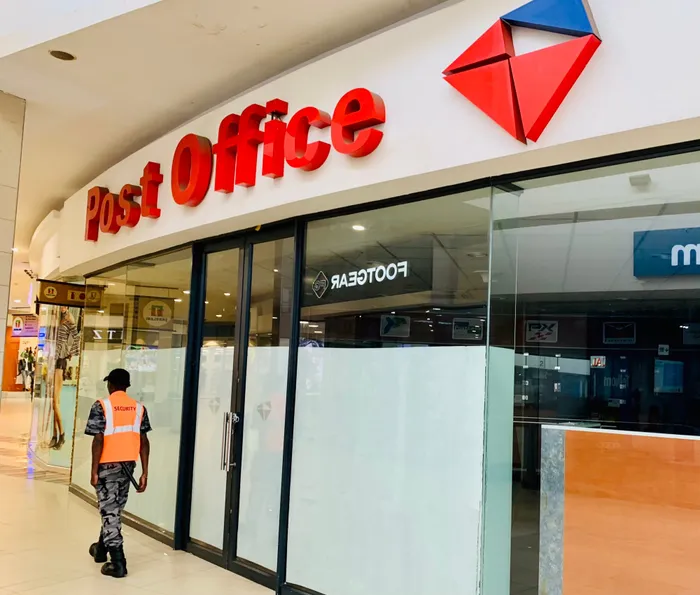
The South African Post Office.
Image: Bhekikhaya Mabaso/Independent Newspapers
The South African Post Office (Sapo) was not mentioned in the Medium-Term Budget Policy Statement (MTBPS), so I had to ask the Finance Minister Enoch Godongwana in his media briefing why that was so.
He answered that this was because the Treasury and the Department of Communications and Digital Technologies had not yet finalised what the Post Office of the Future would look like in the digital age.
Sapo was placed in business rescue on July 10, 2023. In 2023/24, Sapo reduced costs and met some operational targets, yet it remains financially stressed due to high net losses and low revenue. Sapo used the R2.4 billion allocated in 2022/23 to implement a business rescue plan. As part of this plan, it closed 354 branches and retained 657 branches.
The Treasury in its Estimates of National Expenditure (ENE) tabled in February 2025 noted that the Department of Communications and Digital Technologies has allocated R1.8 billion to SAPO for its universal service obligations to provide postal services in underserviced areas.
For over a decade, most state-owned companies (SOC) listed under schedule 2 of the Public Finance Management Act (1999) have not met the legal requirements to maintain sustainable profitability, manage risks effectively and generate returns while ensuring prudent use of public resources. Various initiatives, including turnaround plans agreed with government, are under way, but progress has been mixed.
In 2023/24, state-owned companies reported a negative return on equity of 15.6%, highlighting an ongoing inability to turn a profit. Sales were subdued owing to operational constraints and inefficiency, while costs remained high. In the context of persistent weakness, government has to make difficult choices on the future of these companies. Options include closures, mergers and withdrawal of financial support.
Poor quality management and the adoption of mandates that are not financially feasible should also be addressed. The Treasury said that failure to make proactive decisions will result in continued fiscal pressure or financial collapse, leading to service disruptions and large job losses.
In the interim, state-owned companies continue to use the majority of their cash to meet debt obligations. Cash flows remain insufficient to cover operational costs, financial obligations and capital requirements. Consequently, these companies are unable to effectively fulfil their mandates.
Arms manufacturer Denel remains unable to meet its financial obligations. The MBTPS noted that it has not submitted audited annual financial statements for four years, but it was recapitalised with R3.4 billion, of which R914 million was placed in an escrow account to support its turnaround plan.
“Despite reported progress on the execution of its turnaround plan, the entity lacks working capital. Consequently, government granted Denel access to the remaining recapitalisation funds and provided R660 million in guarantees to support project execution. As noted in previous statements, broader policy decisions, including strategic partnerships, are required for Denel's long-term sustainability. While short-term liquidity pressures have eased slightly, the entity's financial position remains fragile and the risk level is elevated,” the MTBPS said.
The increase in spending on arms as a result of various conflicts around the world should provide Denel with revenue growth going forward.
In his first Medium Term Budget Policy Statement (MTBPS) in November 2021, Finance Minister Enoch Godongwana said he would practice “tough love” when it came to state-owned corporations (SOC) bailouts and that came through again in his media briefing ahead of his actual October 2024 MTBPS speech.
“SOC bailouts have cost the government R520 billion over the past few years. That has meant that this money must come from somewhere and that in most cases has come from the reduction in social services, so there is an opportunity cost to SOC bailouts. One must ask what is the immediate future of the Post Office and is it sustainable in the future,” he asked.